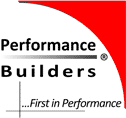Productivity is the fuel that drives prosperity. Productivity is a huge Game Changer. Prosperity follows productivity trends upward and downward! Prosperity erodes when productivity remains stagnant in an improving economy; and turns toxic in falling economic times.
Rising prosperity for rehabilitation professionals over the past half century has been leveraged largely by labor shortages, limited competition, relative affluence in matters of reimbursement, and limited financial accountability. But that is past tense.
Things began to change, first in the mid 60’s with the introduction of Medicare, and then again in the 90s with the introduction of managed care and its various derivatives. Both were Game Changers. Changing population demographics, particularly aging and obesity, along with technology costs, and administrative overhead drive the emerging national health cost crisis. It too promises to be a Game Changer.
With Medicare came increased documentation burdens that began to compete with patient care resources. Then came Intermediaries, fee schedules with ICD-9s, CPTs, RBRVUs, prospective payment with reimbursement literally by the minute, and rules – the rule of 8s, the Rule of one-on-one, and so on...
With Managed Care came more documentation demands, Gate-Keepers, preauthorization, provider networks and contracts, more fee schedules and various payment caps.
From a productivity perspective such regulatory add-ons over time also resulted in the evolution of cumbersome and inefficient practice operations. The efficiency never got built in because systems were layered rather than integrated. The result was operational fragmentation, redundancy, and gaps which are now apparent in diminished productivity that goes unrecognized because "its always been that way" and staff accept it because, "that's just the way it is".
Like an old home that has been repeatedly remodeled over the years, evolved practices just don't flow right because they were designed for compliance not efficiency.
Efficiency is compromised in practices by communication systems, paper work and documentation, work processes and flow, facility layout, construction and traffic patterns, and so much more.
Productivity has also been compromised by the going and coming of staff over the years. Each introduced new layers of operational clutter by importing old compliance forms and processes they packed along from practices where they had previously worked - not because they were efficient but because they were familiar.
With layers, clutter, and variation comes inefficiency. Routine work that needs to be performed repeatedly should be performed consistently with optimal efficiency. The criteria for performing such work should be fast, cheap, and accurate where one size fits all.
Like an archeological dig, the excavation of a practice tells a story of evolution over time. And, practices like garages benefit from periodic reorganization. In practices the reorganization is less physical than it is operationally strategic. The result when done well can transform productivity.
Together Medicare and Managed care have operated on the premise and claim of enhancing quality of care – who could possibly be against that? And to be fair, there have been benefits to the public. But also to be fair, operationally "quality of care" has primarily translated into rule based strategies that have helped assure third party payer profitability at the expense of provider productivity.
Such controls are not conducive to productivity or innovation; both of which are critically needed in the context of national health challenges inclusive of the expanding physical functional needs of the US population to remain healthy, independent, and avoid costly institutional care. Where would innovation, capacity, and culture be in emergency departments if they were operated and reimbursed like rehabilitation departments?
While those external factors have had their impact on productivity, there have also been critical internal factors at play – education and training, investment, management, infrastructure, and professional convenience. We will consider internal productivity matters and attitudes next post.
To be continued...
All The Best!
Bob
© Copyright 2010 Performance Builders








0 comments:
Post a Comment